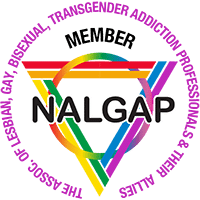Alcohol Addiction Treatment, Denver
Find alcohol addiction help in Denver at Mile High Recovery, where compassionate treatment and connection make healing possible.
Alcohol Addiction Treatment in Denver, CO
At Mile High Recovery Center, we understand the profound impact alcohol addiction has on individuals, families, and communities. Our residential treatment program in Denver offers a supportive, judgment-free environment where clients can begin their healing journey while receiving comprehensive care that addresses the physical, emotional, and spiritual aspects of recovery.
We believe in building a strong foundation for lasting sobriety through personalized treatment plans and community connection. Our approach combines evidence-based therapies with holistic practices, creating a recovery experience that not only helps you overcome alcohol dependency but also rediscovers purpose and joy in a life free from addiction.
Understanding Alcohol Addiction
Alcohol addiction silently affects millions of Americans, creating a powerful physical and psychological dependency that’s extraordinarily difficult to overcome without professional support. Despite its legality and social acceptance, alcohol can create one of the most challenging addictions to address, often progressing so gradually that many don’t recognize the severity until significant damage has occurred.
In today’s active social scene, where drinking is woven into everything from sporting events to hiking meetups, recognizing problematic alcohol use becomes particularly challenging. The line between social drinking and dependency often blurs, leaving many people struggling silently while maintaining outward appearances of normalcy.
The good news is that with proper treatment for alcohol addiction, recovery is not only possible but sustainable. At Mile High Recovery Center, we’ve helped countless individuals reclaim their lives from alcohol dependency.
Benefits of Alcohol Addiction Treatment
Professional therapy forms the cornerstone of effective alcohol addiction treatment, creating structured opportunities for healing and personal growth. In a therapeutic setting, individuals can safely explore the root causes of their dependency while developing new coping mechanisms.
The key benefits of therapy in treating alcohol addiction:
- Safely manages alcohol withdrawal with medical support.
- Identifies and addresses the root causes of alcohol use.
- Teaches strategies to handle cravings and avoid relapse.
- Repairs damage caused by alcohol in personal relationships.
- Improves physical health affected by long-term alcohol use.
- Rebuilds structure and routine lost during active addiction.
- Provides tools to navigate social situations without alcohol.
- Connects you to a sober community for ongoing support.
Whether you’re seeking help for the first time or recommitting to recovery, therapeutic intervention offers the compassionate guidance and evidence-based strategies needed to break free from alcohol’s grip and build a fulfilling life in sobriety.
Need residential treatment for addiction?
Take the first step towards recovery today.
Our team is ready to help you reclaim your life. Call now!

Why Choose Mile High Recovery Center for Alcohol Addiction Treatment?
Mile High Recovery Center offers a structured, empowering path to recovery in the heart of Denver. We provide comprehensive, personalized alcohol addiction treatment designed to heal both body and mind.
Our program is:
- Clinically Proven: We use CBT, DBT, and EMDR to support full-person recovery.
- Compassionate Care: Our team blends expertise with lived experience in a healing space.
- Supportive & Inclusive: We meet you with empathy and zero judgment.
- Community-Based: In Denver, we connect you to local sober networks and resources.
Located in Denver, our alcohol addiction treatment center draws on Colorado’s natural beauty to support your recovery journey. Surrounded by inspiring mountain landscapes, our peaceful setting offers the ideal space to reconnect with yourself, gain clarity, and begin building a strong foundation for a sober, fulfilling life.
- Family Therapy
- Cognitive Behavioral Therapy
- Dialectical Behavior Therapy
- EMDR Therapy
- Adventure Therapy
- Relapse Prevention Therapy
- Group Therapy
- Acceptance And Commitment Therapy (ACT)
- Person-Centered Therapy
- Experiential Therapy
- Motivational Enhancement Therapy
- Psychotherapy
- Anxiety Treatment
- Bipolar Disorder Therapy
- Schizoaffective Disorder Treatment
- Alcohol Addiction
- Cocaine Addiction
- Benzodiazepines Addiction
- Opiate Addiction
- Stimulant Addiction
- Suboxone Addiction
- Vivitrol Addiction
- Ecstasy Addiction
- Xanax Addiction
- Hydrocodone Addiction
- Fentanyl Addiction
- Opioid Addiction
- LSD Addiction
- Marijuana Addiction
- Methamphetamine Addiction
- Ritalin Addiction
- OxyContin Addiction
Colorado Rehab | Real Recovery Stories
Resources
- https://pmc.ncbi.nlm.nih.gov/articles/PMC3860532/
- https://www.niaaa.nih.gov/publications/brochures-and-fact-sheets/treatment-alcohol-problems-finding-and-getting-help
- https://www.apa.org/topics/substance-use-abuse-addiction/alcohol-disorders
- https://www.princeton.edu/~ota/disk3/1983/8307/830707.PDF
- https://jamanetwork.com/journals/jama/fullarticle/2776202


- Family Therapy
- Cognitive Behavioral Therapy
- Dialectical Behavior Therapy
- EMDR Therapy
- Adventure Therapy
- Relapse Prevention Therapy
- Group Therapy
- Acceptance And Commitment Therapy (ACT)
- Person-Centered Therapy
- Experiential Therapy
- Motivational Enhancement Therapy
- Psychotherapy
- Anxiety Treatment
- Bipolar Disorder Therapy
- Schizoaffective Disorder Treatment
- Individual Therapy
- Alcohol Addiction
- Cocaine Addiction
- Benzodiazepines Addiction
- Opiate Addiction
- Stimulant Addiction
- Suboxone Addiction
- Vivitrol Addiction
- Ecstasy Addiction
- Xanax Addiction
- Hydrocodone Addiction
- Fentanyl Addiction
- Opioid Addiction
- LSD Addiction
- Marijuana Addiction
- Methamphetamine Addiction
- Ritalin Addiction
- OxyContin Addiction
- Prescription Drug Addiction
- Valium Addiction
Reach Out Today to See How Mile High Recovery Center Can Help You Heal
If you or a loved one are ready to regain autonomy over your lives and well-being, recovery starts here. Let us guide you toward sustainable wellness and sobriety through our personalized treatment plans tailored to your unique needs and experiences. We look forward to hearing from you!


